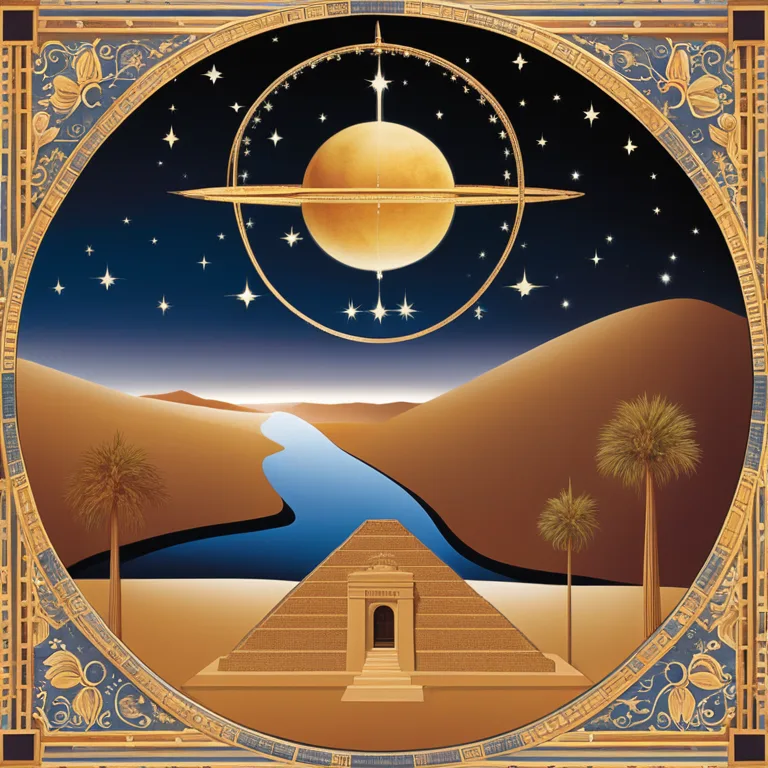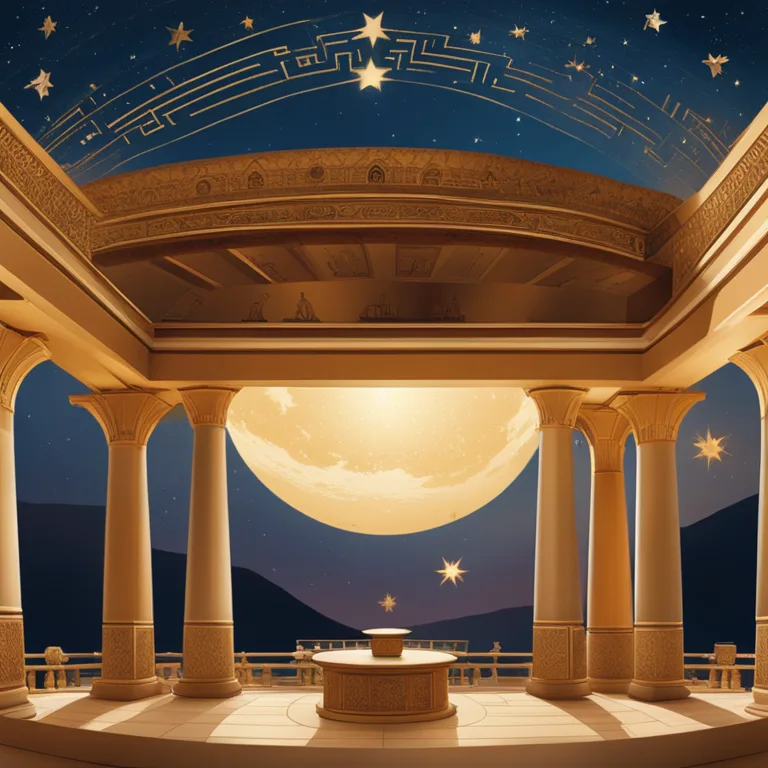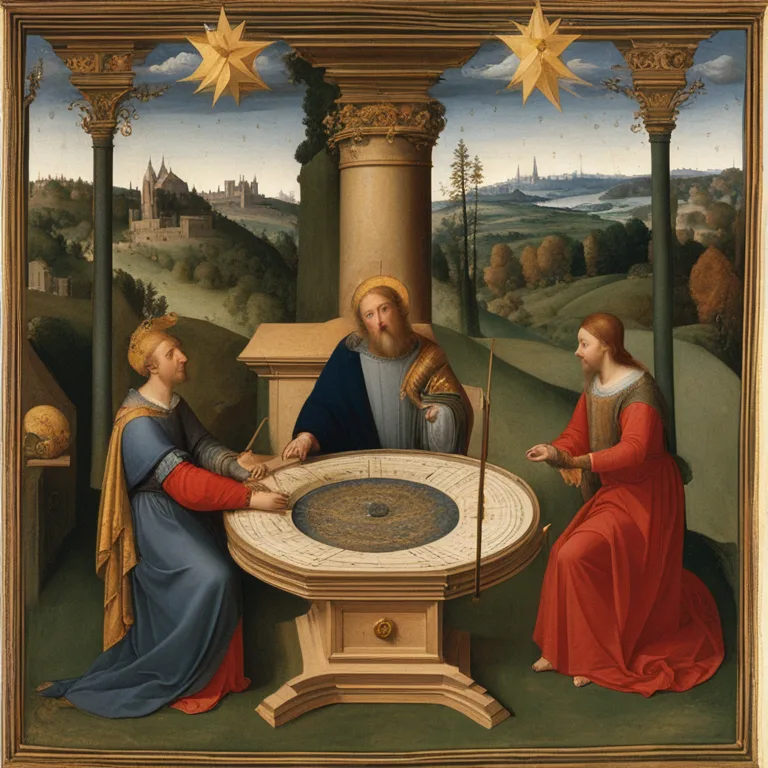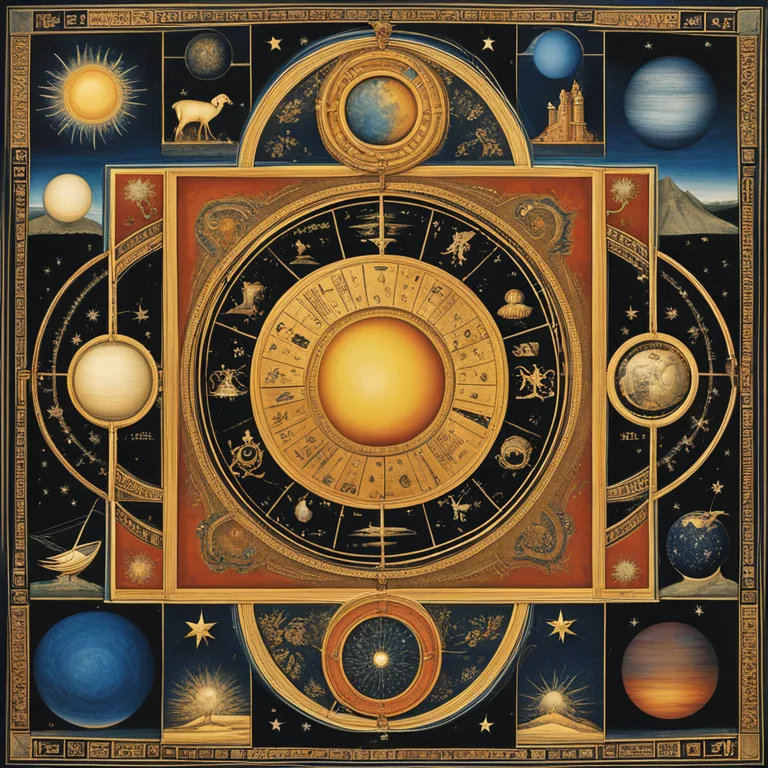
The Genesis of Astrology Explored
Traverse the celestial origins and historical evolution of astrology, from ancient observations to modern-day cosmic connectivity.
article by Priya Deshmukh
Ancient Beginnings
The roots of astrology trace back to ancient civilizations, where the stars were more than just twinkling lights in the night sky – they were a canvas for myths, legends, and divine guidance. Ancient Babylonians are credited with one of the earliest structured approaches to astrology, more than 2,000 years BC. They meticulously recorded the movements of planets and stars, believing they were messages from the gods, meant to guide the course of human affairs. These celestial observations laid the groundwork for astrological principles that would eventually spread across cultures and centuries.

Hellenistic Influences and the Zodiac
The creation of astrology as we know it was significantly influenced by Hellenistic culture during the time of Alexander the Great's empire. It was then that the intersection of Babylonian sky-watching with Egyptian and Greek knowledge gave rise to the Zodiac – a belt of the heavens within which the movements of the sun, the moon, and the principal planets all take place. This celestial script detailed twelve constellations that correspond to different periods of the year, giving each individual a specific star sign at birth, a concept still prevalent in modern-day astrology.

The Philosophical and Scientific Tapestry
Astrology's development intertwined with the philosophical and scientific discourse of its time. Great thinkers and scholars such as Ptolemy played a pivotal role in crafting a framework for astrological practice, which sought to connect the macrocosm of the celestial world with the microcosm of human experience. These early astrologers posited that the positions of celestial bodies at an individual's time of birth influenced their personality and fate, an idea that spurred the creation of the personal horoscope.

The Middle Ages and the Renaissance
During the Middle Ages in Europe, astrology was heavily intertwined with medicine, meteorology, and alchemy, strongly influencing daily life and political decisions. In the Renaissance, a renewed interest in classical learning sparked an astrology boom. Figures like Nostradamus and Tycho Brahe propelled astrology with their predictions and observatory findings, giving it a place in the hearts and minds of both the public and the elite, despite the pushback from emerging scientific discoveries.

Astrology Redefined in the Modern Era
The 20th century saw a transformative reinterpretation of astrology, with a psychological spin thanks to figures like Carl Jung, who recognized the symbolism of astrology as a reflection of the human psyche. Astrological readings and horoscopes became popular in print media. Moving into the 21st century and looking ahead into 2024 and beyond, astrology maintains a prominent role, with online forecasts and apps incorporating sophisticated algorithms to enhance the personal relevance of astrological insights for an increasingly digital audience.
Astrology Today and Tomorrow
In contemporary times, astrology is seen less as a predictive science and more as a tool for self-understanding and reflection. The 2024 forecasts promise a period of significant transformation as the slow-moving planets Pluto, Neptune, and Uranus change signs, signaling shifts in global consciousness and personal growth. As we witness the evolution of our society, astrology offers a unique perspective, weaving the threads of ancient wisdom with the contemporary quest for meaning amidst the stars.
Published: 12/29/2023
Modified: 12/29/2023
More predictions
Come back here soon to learn more about yourself and your future


Astrology: Tracing Its Linguistic Heritage
Dive into the linguistic origins of astrology, unraveling the etymology and historical context of this ancient practice.


Your Astrological House Stars Journey
Discover the significance of astrology houses in your birth chart and learn which astrological house you belong to for deeper self-awareness.


The Mechanics of Astrology: Cosmic Influence
Delve into the intriguing realm of astrological practices and discover how celestial bodies are believed to hold sway over human destiny.